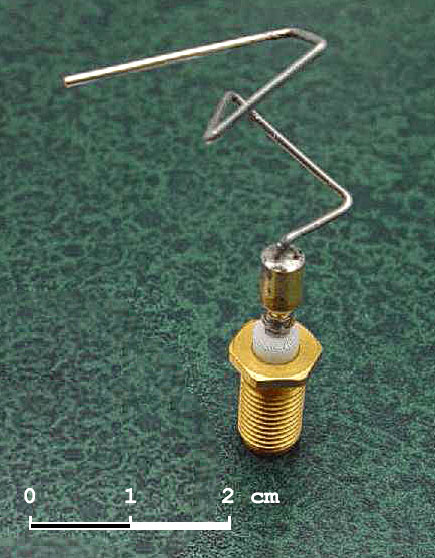[ad_1]
Synthetic intelligence (AI) ought to no extra be given a patent on an invention than my phrase processor needs to be granted a copyright on the article I’m writing. But the US Appeals Court docket has not too long ago been advised:
[AI] needs to be thought-about the inventor on patent purposes protecting a beverage container primarily based on fractal geometry and a lightweight beacon that flashes in a brand new manner.
Blake Britten, “Synthetic intelligence generally is a patent ‘inventor,’ U.S. appeals court docket advised” at Reuters (June 6, 2022)
Like bulldozers, electrical energy, and nuclear energy, AI is a device. Make no mistake, AI is a strong and doubtlessly harmful device. However like my phrase processor. it in the end does solely what it’s instructed to do.
Here’s a basic manner AI is used as a device within the design of issues patentable. Whether or not coaching synthetic intelligence or performing a search, design is at all times iterative. System 409TM, the spray cleaner bought by the Clorox firm, was perfected after 409 makes an attempt at assembly a design criterion — therefore the identify. WD-40TM, invented in 1953 by chemist Norman B. Larsen, stands for “water displacement, formulation profitable in fortieth try.” Each merchandise required quite a few tries to get issues proper.

As an alternative of originating in a collection of experiments in a lab, many designs at present will be completed quickly on a pc. A human professional can map out hundreds — even hundreds of thousands — of attainable options to an issue. NASA used AI on this technique to iteratively design an antenna that appears like a weirdly bent paper clip caught in a cork. To design the antenna, NASA regarded by way of numerous totally different paper clip bends to reach at the perfect design. The outcomes of such a search will be stunning and sudden, however they’re in the end within the silo of expectations that the programmer wrote the AI to design.
Different issues, just like the design of AlphaGo, which beat the world champion within the difficult board recreation of Go, have so many various states and options that they outnumber the atoms within the universe. Making an attempt all of them isn’t attainable however pc scientists have discovered methods to intelligently wade by way of the ocean of options to get good outcomes. There are a variety of procedures to do that. One dimension doesn’t match all. A very good programmer will select the perfect match between the process and the issue being thought-about.
Human area experience is crucial for any design. In AI, this comes from the pc programmer. Think about WD-40TM being invented by a highschool chemistry scholar as a substitute of a seasoned industrial chemist. The design would lead to an even bigger quantity — extra like WD-4000. Likewise, a clueless pc with out the information of electromagnetics or antennas may by no means invent the NASA antenna by itself.
There are numerous variations of AI, however all, in some unspecified time in the future, require iterative trials to get higher and higher efficiency. The extra area experience a programmer can import into the AI, the higher. If there isn’t any guiding human area experience of any variety, AI merely doesn’t work. AI, by itself, won’t ever be inventive. It does what it’s advised to do by a inventive human being.
The pc programmer and people creatively contributing to this system needs to be granted the patent. Not a pc that essentially simply pushes numbers round.
Listed below are some brief excerpts from Robert J. Marks’s new e book Non-Computable You: What You Do That Synthetic Intelligence By no means Will (Discovery Institute Press, 2022):
Why you aren’t — and can’t be — computable. A pc science prof explains in a brand new e book that pc intelligence doesn’t maintain a candle to human intelligence. On this excerpt, Dr. Marks reveals why most human expertise isn’t even computable.
The Software program of the Gaps: Dr. Marks takes on claims that consciousness is rising from AI and that we will add our brains. He reminds us of the story of the boy who dug by way of a pile of manure as a result of he was certain that … beneath all that poop, there should absolutely be a pony!
Marks: Synthetic intelligence isn’t any extra inventive than a pencil. You should utilize a pencil — however the creativity comes from you. With AI, intelligent programmers can conceal that truth for some time. On this brief excerpt. Robert J. Marks discusses the tips that make you suppose chatbots are individuals.
Machines with minds? The Lovelace check vs. the Turing check. The solutions pc packages give generally shock me too — however they at all times consequence from their programming. In the case of assessing creativity (and subsequently consciousness and humanness), the Lovelace check is significantly better than the Turing check.
Machines with minds? The Lovelace check vs. the Turing check The solutions pc packages give generally shock me too — however they at all times consequence from their programming. In the case of assessing creativity (and subsequently consciousness and humanness), the Lovelace check is significantly better than the Turing check.
and
AI: The shadow of Frankenstein lurks within the Uncanny Valley. The fifth and ultimate excerpt from Non-Computable You (2022), from Chapter 6, focuses on the scarier AI hype. Mary Shelley’s “Frankenstein” monster (1808) wasn’t strictly a robotic. However she popularized the concept — now AI hype — of making a human-like being in a lab.
[ad_2]
Supply hyperlink